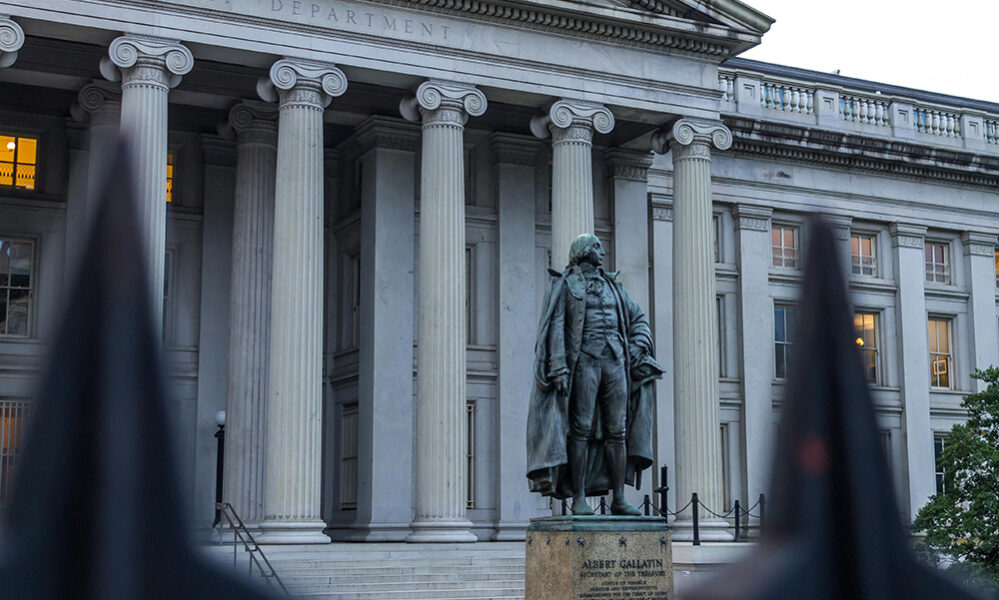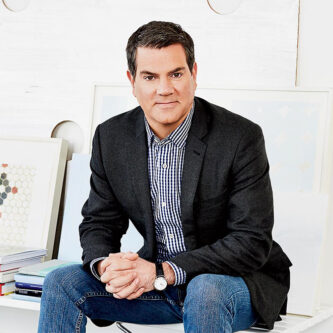BUSINESS
NEWS
Gulf Coast Western Reviews: How Crisis Management Defines Industry Leadership
By Sandy Di AngelisThe Business Case for Investing in Supply Chain Talent
By Nicole ChoquetteGrowing Demand for Immigration Lawyers Highlights Role of Glenn Immigration LLC in Navigating U.S. Immigration Law
By Steve ArnettCLIMATE
CHANGE
Satellites Now Track Decades of Forest Growth From Space
By Tina GeigerAncient Climate Patterns Offer Clues to Future Rainfall Shifts
By Yves DucrotOFAC targets transnational narcotics and money laundering group linked to cocaine shipments bound for the United States and Europe
The U.S. Department of the Treasury has imposed sanctions on one of the Caribbean region’s largest cocaine trafficking networks, designating multiple individuals and entities for their roles in transporting multi-ton quantities of cocaine from Colombia through Costa Rica and onward to markets in the United States and Europe. The action was announced by the Treasury’s Office of Foreign Assets Control (OFAC) on January 22, 2026.
The sanctions respond to a growing role for Costa Rica as a key transshipment point in the global cocaine supply chain, and represent the latest coordinated effort by U.S. and international law enforcement to disrupt narcotics trafficking networks and their financial infrastructure.
Targets Include Key Leaders and Supporting Entities
Five Costa Rican nationals and five Costa Rica-based companies have been added to OFAC’s sanctions list for their involvement in drug trafficking and money laundering activities. At the center of the network is Luis Manuel Picado Grijalba, widely known as “Shock,” who U.S. authorities have identified as one of the most prolific cocaine traffickers operating in the Caribbean region. His brother, Jordie Kevin Picado Grijalba, also known as “Noni,” is similarly sanctioned.
The organizational network was responsible for importing cocaine into Costa Rica, storing it in warehouses nationwide…
PUBLIC
INTEREST
Coast Guard Cutter Alert Returns Home After Seizing More Than $18 Million in Narcotics

The U.S. Coast Guard Cutter Alert has returned to its homeport following a multi-week deployment in which its crew seized more than $18 million worth of illegal narcotics and detained multiple suspected smugglers during interdiction operations in international waters.
The Alert crew conducted a series of high-tempo law enforcement…
U.S. and Japan Reaffirm Defense Ties as Hegseth Hosts Japanese Counterpart at the Pentagon

U.S. Secretary of War Pete Hegseth welcomed Shinjirō Koizumi, Japan’s Minister of Defense, to the Pentagon for a high-level bilateral meeting aimed at reinforcing the long-standing security partnership between the United States and Japan. The January 15 encounter emphasized mutual support for defense priorities, alliance cooperation, and strategic…
CULTURE
NEWS
Why Sketching Is Becoming the New Digital Detox
By Emily PattersonOutdoor Living Rooms: How to Style Your Garden as a Luxury Interior Extension
By Dennis KellerRH
FINANCIAL
Gulf Coast Western Reviews: How Crisis Management Defines Industry Leadership
In the volatile oil and gas sector, how a company navigates economic downturns often reveals
The Business Case for Investing in Supply Chain Talent
Wilmington, NC, has grown into more than a coastal city with charm. It is now
THIS WEEK'S HEADLINES
New data shows patients in some states are waiting more than four hours to be seen as staffing gaps strain hospitals nationwide
Healthcare staff shortages are contributing to alarmingly long waiting times in emergency departments across the United States, according to a new study analyzing state-level hospital data. While recent reporting has highlighted staffing crises within the U.S. Department of Veterans Affairs, the findings indicate that the issue extends far beyond federal facilities and is affecting hospitals nationwide.
The study, conducted by personal injury attorneys at Injured In Florida, examined how long patients wait in emergency departments before being seen by a doctor or nurse. Using data from the Centers for Medicare and Medicaid Services, researchers identified significant disparities between states, with some patients waiting far longer than the national average.
National Emergency Department Waiting Time Averages
Across the U.S., patients spend an average of 159.9 minutes waiting in emergency departments before receiving medical attention. However, in several states, wait times exceed three or even four hours, raising concerns about patient safety, treatment delays, and overall hospital capacity.
Maryland recorded the longest emergency department wait times in the country. Patients there wait an average of 248.2 minutes, which is 55 percent higher than the national average. Factors such as hospital overcrowding, workforce shortages, and high patient demand are likely contributing to these delays.
Massachusetts ranked second, with an average wait time of 223.9 minutes, roughly 40 percent above the national average. High demand in densely populated urban areas, including Boston, appears to be driving longer emergency department stays across the state.
Rhode Island placed third, with patients waiting an average of 222.6 minutes before being seen. As the smallest state by land area, limited hospital capacity may be impacting patient flow and wait times.
Delaware ranked fourth, with an average emergency department…
CURRENT EDITION
New remote sensing approach reveals how forests have grown over more than 30 years and offers a powerful tool for climate science and policy
By Tina Geiger / Staff WriterA collaborative international research effort has produced a new way to observe forest growth across large regions over extended time periods using satellite data. The work provides the first continuous record of annual forest canopy height, opening new avenues for tracking biomass accumulation, forest health, and the potential for global carbon storage.
Forests are vital to Earth’s carbon cycle and support diverse ecosystems, but understanding how they grow and change over decades has historically required costly and labor-intensive field measurements. Traditional forest maps provide snapshots rather than continuous growth patterns, limiting their usefulness for long-term analysis and policy planning.
New Satellite-Driven Forest Growth Data
Researchers from the Chinese Academy of Sciences, the University of Copenhagen, and partner institutions used the Landsat satellite archive and advanced machine learning to reconstruct annual canopy height maps from 1986 through 2019. These maps were generated at 30-meter resolution and validated with airborne lidar measurements and national forest inventories to ensure accuracy.
This method uses a Random Forest machine learning model trained on existing global canopy height products to predict vertical forest growth patterns from satellite spectral data. The model showed consistent performance across different regions and decades.
The analysis revealed that forests in southern China have grown significantly over the past three decades. Average canopy height increased from approximately 6.4 meters in 1986 to more than 10.3 meters in 2019, a rise of over 60 percent. Plantation forests showed faster growth cycles, while secondary forests grew more steadily.
Key Drivers and Environmental Insights
Statistical analysis identified major factors influencing forest height changes. Forest age…
In the volatile oil and gas sector, how a company navigates economic downturns often reveals more about its character than how it performs during boom times. Gulf Coast Western reviews consistently highlight one critical strength: the company’s ability to weather industry crises while maintaining transparency and partner trust. Since its founding in 1970, the Dallas-based energy firm has demonstrated resilience through multiple market disruptions, emerging stronger after each challenge.
Surviving the Great Recession
The 2008 financial crisis proved devastating for many oil and gas companies, forcing widespread operational shutdowns and bankruptcies. Gulf Coast Western reviews from this period reveal a different story. Under CEO Matthew H. Fleeger’s direction, corporate overhead was greatly reduced while key personnel stayed on and major prospect investments continued.
This strategic approach to crisis management allowed Gulf Coast Western to not merely survive but position itself for growth. When the economy gradually returned to an even keel, Gulf Coast Western had become a much stronger business entity, having streamlined operations and made technological enhancements that increased competitiveness.
Transparent Communication During Market Volatility
What distinguishes Gulf Coast Western reviews during challenging periods is the company’s commitment to honest partner communication. As with other low-risk investment opportunities, occasional hiccups, unforeseen changes, global issues, and industry events can create temporarily unfavorable conditions. Unlike many competing companies in the oil industry, Gulf Coast Western recognizes the need to maintain open and…
CURRENT EDITION
The Business Case for Investing in Supply Chain Talent
Wilmington, NC, has grown into more than a coastal cityGrowing Demand for Immigration Lawyers Highlights Role of Glenn Immigration LLC in Navigating U.S. Immigration Law
Glenn Immigration LLC, accessible online at GlennImmigration.com, is advancing its$1,776 Warrior Dividend Declared Tax-Free by IRS for U.S. Service Members
The Internal Revenue Service (IRS) has officially confirmed that theCalifornia Realtors Push for Broader Homeownership in Response to State Address
The California Association of Realtors (C.A.R.) issued a formal responseHow to Protect Your Finances and Thrive in a Recession
For busy parents juggling childcare and bills, hourly workers withCrisis on America’s Roads: Why Commercial Transportation Safety Is Falling Behind the U.S. Economy
Over the past five years, the U.S. transportation industry has- Loading stock data...
EDITOR'S
CHOICE
United States and Israel Launch Strategic Partnership on Artificial Intelligence and Critical Technologies

WEATHER
TODAY
RH
NEWSROOM
Beyond Basics: 6 Fashion Picks That Can Add Instant Interest to Your Outfits































